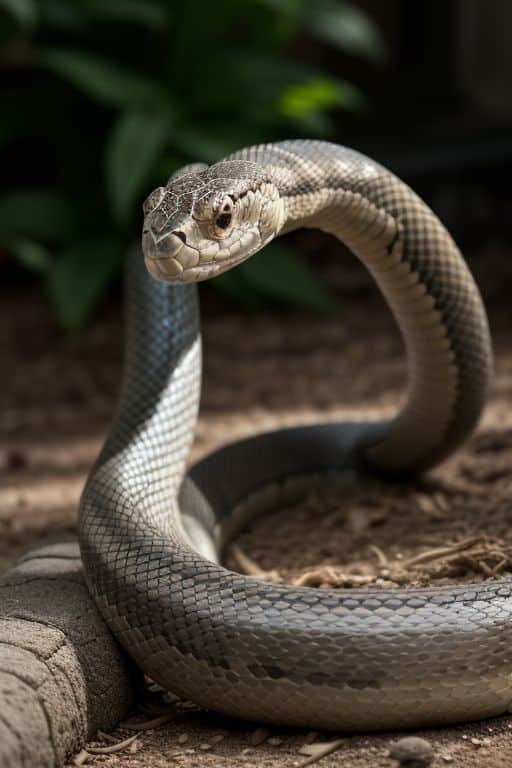
Common Myths About Using Ammonia for Snake Control
One of the creatures that evokes mixed conflicting feelings in humans is the snake. To some, they are amazingly beautiful. Others may make people feel queasy. Snakes actually help the ecosystem in many ways. They hunt various rodents, insects, and other small reptiles that could become pests. This said, many homeowners wish to keep snakes away from their yards.
Many claim that ammonia repels snakes; it is the smell that makes snakes retreat or totally avoid a particular area. But is that fact? We shall delve into the facts in this post. We shall touch on some more reliable ways of reducing snake encounters; then go further to explore some easy steps you can take towards making your home more secure. Let’s get started.
Understanding Snake Behaviour
People highly misconstrue snakes. They are not out to attack or chase people. Snakes move to higher or lower terrain in pursuit of food, warmth or cover. They often show up in areas where there are insects and rodents. They are attracted to those tasty treats. Wood piles, Rock formations and tall grass also draw them in. These are hidden haunts and secure places to stay in safe and attack.
You could also find snakes in the area, including sunny spots, since they are ectothermic animals and take their body temperatures from outside sources. Maybe a warm rock or just a patch of lawn at the right time will give them what they want and need. They’ll tarry awhile, soaking in the heat. When it does get too hot, they slink into damp areas.
These behaviours are important to understand because it helps you to grasp why a snake would want to hang out on your property. It will also inform your efforts in making your yard less appealing to them. Take away the boxes, and you take away their desire; take away the rodents, and you take away the main attraction. Snakes come for the food, stay for the shelter.
The Ammonia Snake Repellent Myth
Homeowners will often research countless tricks for keeping snakes away. One popular trick involves ammonia. The idea behind the trick is that ammonia’s pungent smell bothers snakes. Individuals have been known to place ammonia-soaked rags around the home. Others set open cups of ammonia near potential points of entry.
However, there is not a shred of concrete evidence that ammonia will really keep snakes away as a fact. Scientists have not found evidence that snakes try to avoid fumes of ammonia. People have tried the idea, but rarely do they tend to see good results. Snakes have different biology compared to rodents and insects. They simply may not find ammonia offensive enough to leave. Many factors determine where a snake moves. One smell rarely alters their entire behavior.
It works just as it does in the preceding situation to give you a false sense of security. You think it solves your snake problem, so you relax and skip other preventive steps, while snakes may still be crawling in your yard. Depending on myths means you’ve ignored real solutions. A risk that could lead to very unpleasant surprises later.
Better Ways to Deter Snakes
Ammonia snake control seldom works when one relies on it. Besides, it comes with its own health and environmental risks. Instead, consider more practical measures. The first and most important measure is controlling populations of rodents. Snakes are fond of mice and rats. If there’s a problem with rodents in your home, snakes will have a reason for visiting. Secure all your garbage. Store it in covered bins to keep the pests out. Seal any home’s holes where rodents might be gaining entrance. Remove any leftover food right away if you feed your pets outside.
Get rid of bugs as well. Certain snake species prey on large insects. Keep your yard clean so that bugs have fewer places to hide. Eliminate standing water. Mosquitoes breed in stagnant water, which attracts other insects, and those attract snakes. You get rid of the biggest attraction for snakes by managing food sources.
Next, look at possible shelter spots. Snakes rest under wood piles or debris. They love tall grass or thick shrubs. Mow your lawn often. Trim bushes to reduce shaded hideouts. Remove leaf piles and stacked materials. If you store firewood, elevate it off the ground. Keep it a few feet from your home, so snakes cannot use the woodpile as a base.
Check your house for any open gaps or cracks outside. Inspect the doors for any opening, sides of the windows, and the base foundation of the house. Seal any gaps or holes. Snakes can fit into very small places, so an airtight house will keep them outside. Another good option is to snakeproof a fence around your house. A lot of species are blocked by wire mesh or metal fences that go to the ground. It is best to bury the bottom of the fence a few inches into the ground. This way snakes will not be able to burrow under it.
Natural Deterrents and their Limitations
You may ask, do essential oils work worse than ammonia? Others incorporate clove or cinnamon, or cedarwood oils. They claim the intense smell can scare snakes away, but a lot of the evidence is dubious at best. A lot of it is anecdotal. Snakes may stay from a place that has those scents, or they completely ignore it. Depending on which species you are referring, the result may differ greatly.
However, essential oils generally bring fewer risks than ammonia. They can smell pleasant to humans, and they might help discourage insects or rodents; that alone may reduce snake interest. But if you have a large snake population, these oils alone will not solve the problem.
Dealing with a Snake Encounter
You may still meet a snake even with the best precautions. Its Important to stay calm. Most snakes are not aggressive and will not attack or pursue you unless you threaten them. They tend to freeze or slither away at your presence. Keep your distance. Under no circumstances should you corner or threaten the snake or try to kill it. A lot of individuals suffer bites when attempting to kill a snake. Not stepping back increases the chance of being bitten. When you can, find out what kind of snake it is from a safe distance. This will help experts if you do call for help.
There are wildlife control services or animal rescue groups in many areas. They can move the snake out of your property without harming it or you. They may also share some tips on how to keep your yard less appealing to snakes. Children and interested onlookers should be told not to approach or handle snakes. Even harmless snakes will bite in self defence. Young children won’t know the potential signs of danger. The child may reach out to touch a snake without realizing the danger that may be lurking. Tell them why the snake should be left alone and treated with respect.
When To Call A Pro For Help
Sometimes, a snake infestation may be hard to handle all by yourself. Maybe you see several snakes every day. Perhaps they linger closer to your home or closer to your children’s play area. In such cases, professional support is helpful. Services for wildlife control can pinpoint entry points. They are also able to set humane traps if this is necessary. They often offer long-term prevention suggestions.
The professionals will most definitely know your local snakes. They can tell venomous species from harmless ones, remove trouble snakes safely, and even guide you in shaping your yard to discourage future visits. In this way, you will be able to keep your surroundings safer while respecting the wildlife.
Conclusion
Snakes balance out nature, preying on rodents and insects. They do a much-needed job, but they can make the home-owner a little nervous. Some resort to using ammonia in hopes of repelling snakes. No sound evidence, however, supports ammonia as an effective snake deterrent. In its place you put pets, wildlife, and the environment at risk. Don’t freak-out if you see a snake facing you. Give them space. Call in professionals if you don’t feel safe. Wildlife experts will remove the snake and offer advice on future precautions.





